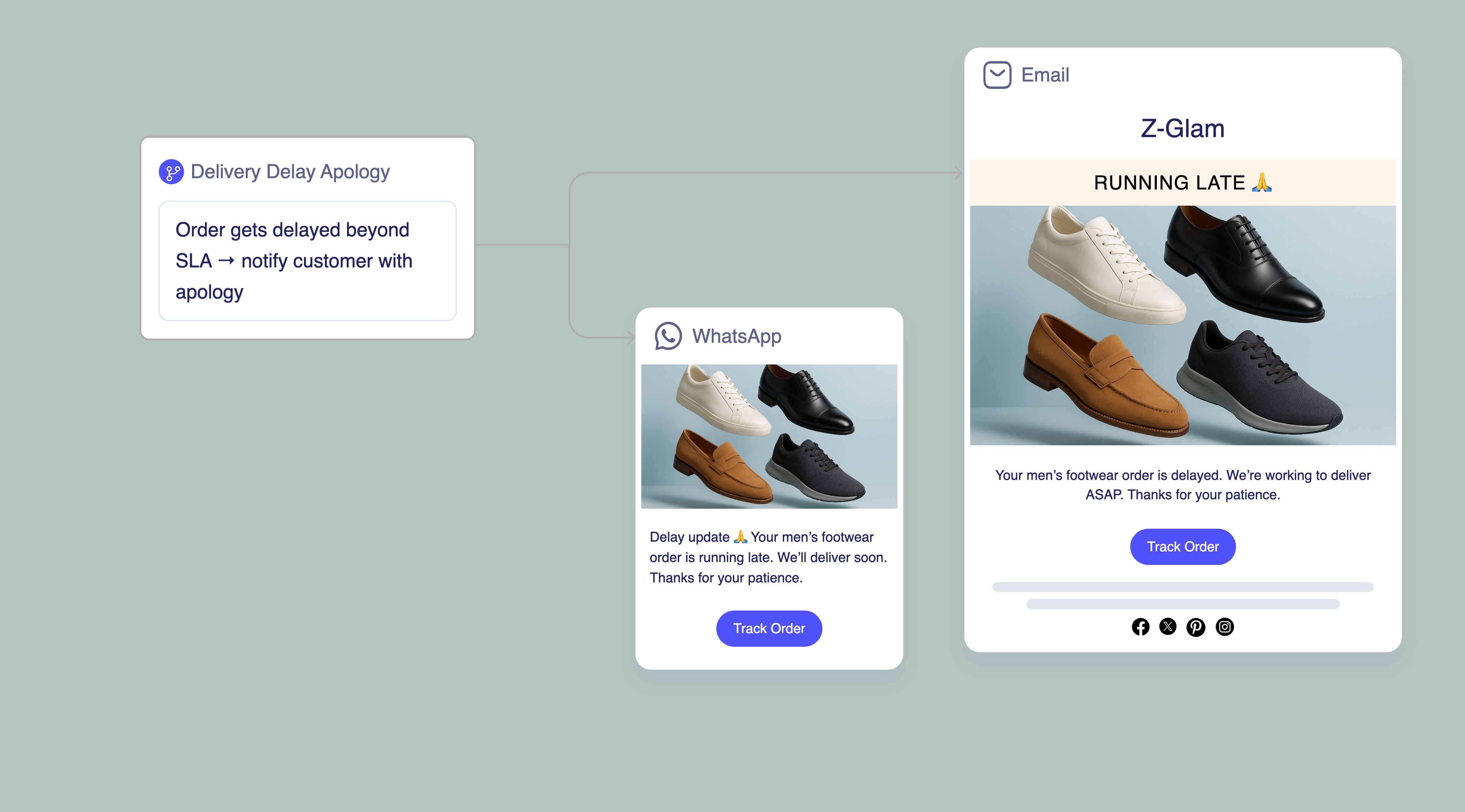
Delivery Delay Apology
Provide customer reassurance by proactively notifying customers about delivery delays with revised timelines and goodwill gestures.

What is a Delivery Delay Apology?
Delivery Delay Apology campaigns notify customers when their order is delayed beyond the promised timeline. Instead of leaving customers frustrated, brands send proactive updates with a clear apology, revised delivery dates, and sometimes compensation (like discounts or loyalty points). This honesty strengthens customer relationships even in negative situations.
Why Delivery Delay Apologies Matter

Challenges

Opportunities
Outcomes
Lower cancellation and refund requests
Improved customer trust and satisfaction
Stronger long-term loyalty despite setbacks
Who is it for?
Audience
Exclusions
How it Plays Out
A sample sequence for this use case.
Sorry, your order is taking longer. Your delivery is delayed. New ETA: [Date]. Thanks for your patience → [CTA]
Hi [Name], your order is delayed. New delivery date is [Date]. Thanks for bearing with us → [Link]
Delay update: Your order is still on the way - revised delivery: [Date] → [Track Order]
Sorry for the wait - here's a small thank you for your patience → [Claim Offer]
Best Practices
- Send delay notifications immediately when delays are detected to provide prompt transparency about delivery issues.
- Include specific revised delivery dates rather than vague delay messaging to help customers plan accordingly.
- Offer appropriate goodwill gestures like discount codes or expedited shipping credits to acknowledge the inconvenience.
Delivery Delay Apology Examples & Prompts
Channel Examples
Automate with Zenie Prompts
With Zenie, you can automatically trigger apology campaigns when delivery delays are detected.
Explore Similar eCommerce Marketing Strategies
FAQs
Why should businesses proactively communicate delivery delays instead of waiting for customers to inquire?
Proactive delay communication maintains customer trust and demonstrates transparency during service disruptions. Customers appreciate being informed rather than discovering delays themselves, and early communication prevents frustration from unmet expectations.
What timing works best for delivery delay notifications?
Send delay notifications as soon as delays are detected in shipping systems, ideally before the original delivery date passes. Early communication allows customers to adjust their plans and shows respect for their time.
Should delivery delay campaigns include compensation or just communication?
Include appropriate goodwill gestures when delays significantly impact customers, such as discount codes for future orders or expedited shipping credits. The compensation should match the severity and impact of the delay.
How should delay apology messages balance accountability with explanation?
Take clear responsibility for the delay while providing brief, honest explanations when helpful. Focus more on revised timelines and making things right rather than detailed justifications for operational issues.
What metrics measure delivery delay campaign effectiveness?
Track customer satisfaction scores during delay periods, support inquiry reduction, repeat purchase rates from delayed customers, and goodwill gesture redemption rates. Monitor whether proactive communication maintains customer relationships despite service disruptions.


